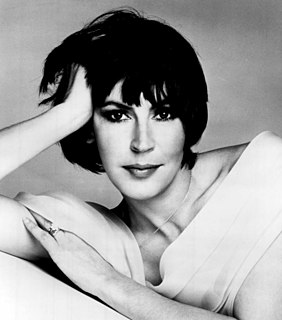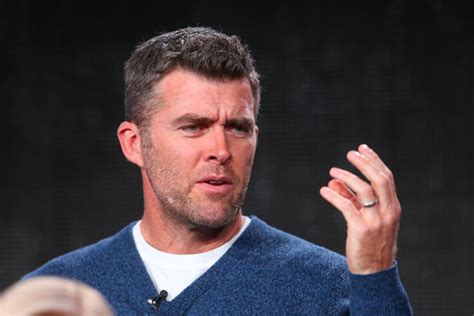A Quote by Helen Reddy
I've been in a serious conversation with one of my children, and a fan has come up. I've been in a public bathroom and had the hand come under the stall with a paper and pen. That sort of thing anybody can live without.
Related Quotes
I don't even own a computer. I write by hand then I type it up on an old manual typewriter. But I cross out a lot - I'm not writing in stone tablets, it's just ink on paper. I don't feel comfortable without a pen or a pencil in my hand. I can't think with my fingers on the keyboard. Words are generated for me by gripping the pen, and pressing the point on the paper.
Chroniclers of the role of paper in history are given to extravagant pronouncements: Architecture would not have been possible without paper. Without paper, there would have been no Renaissance. If there had been no paper, the Industrial Revolution would not have been possible. None of these statements is true.
Surely it is an odd way to spend your life - sitting alone in a room with a pen in your hand, hour after hour, day after day, year after year, struggling to put words on pieces of paper in order to give birth to what does not exist - except in your head. Why on earth would anyone want to do such a thing? The only answer I have ever been able to come up with is: because you have to, because you have no choice.
I served for 42 years on the board of trustees of the largest Presbyterian seminary, Princeton Theological Seminary, and we had brilliant people - teachers and students both-but they did not come up with many new concepts. They weren't invited to come up with new concepts. Anybody who had come up with a new concept would have been under suspicion for being out of step with the tradition or out of step with the teachings of the church.
Peter was not with them for the moment, and they felt rather lonely up there by themselves. He could go so much faster than they that he would suddenly shoot out of sight, to have some adventure in which they had no share. He would come down laughing over something fearfully funny he had been saying to a star, but he had already forgotten what it was, or he would come up with mermaid scales still sticking to him, and yet not be able to to say for certain what had been happening. It was really rather irritating to children who had never seen a mermaid.
Television is just amazing - how many people see it and how many people recognize you, and I think once you've had the opportunity and have been in front of the public, it's very flattering to have people come up and say hello to you. It's a tremendous industry. I've been in places where people come out of the woodwork. And you would never think - small towns in France or traveling through Europe - and there are so many of those people there that recognize you, and you've been in their homes. I find it to be a very flattering thing.
I spent a lot of time thinking that I was some kind of foundling, that I had been a changeling, that I had been found under a bush somewhere, and that I couldn't possibly be kin - but the more I live, the more I feel absolutely like I come out of my family. I'm a sort of strange natural progression.
First, consider the pen you write with. It should be a fast-writing pen because your thoughts are always much faster than your hand. You don't want to slow up your hand even more with a slow pen. A ballpoint, a pencil, a felt tip, for sure, are slow. Go to a stationery store and see what feels good to you. Try out different kinds. Don't get too fancy and expensive. I mostly use a cheap Sheaffer fountain pen, about $1.95.... You want to be able to feel the connection and texture of the pen on paper.
The worst is that the very hardest thinking will not bring thoughts. They must come like good children of God and cry, "Here we are." You expend effort and energy thinking hard. Then, after you have given up, they come sauntering in with their hands in their pockets. If the effort had not been made to open the door, however, who knows when they could have come.



































